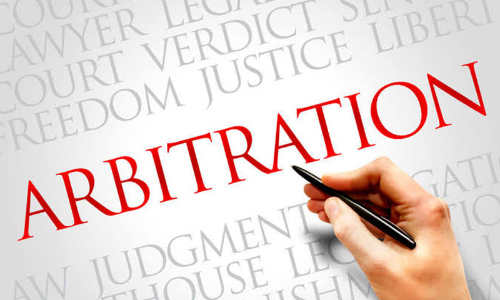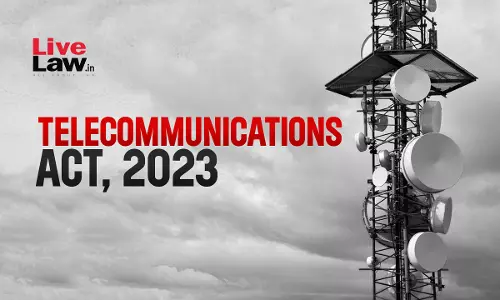Law School Articles
India's Whistle Blower Protection Act: A Beacon of Hope Or A Work In Progress?
Whistleblowing is a vital mechanism for upholding transparency, integrity, and accountability within organizations. It involves the disclosure of any illegal, unethical, or otherwise inappropriate information or activities within an organization. Typically, individuals, often current or former employees, make these disclosures to entities or individuals with the authority to address the issues. In India, whistleblowing has increasingly garnered attention, especially in light of prominent...
From Policies To Practice: Women In India Redefine Roles And Drive National Progress
“The day will come when man will recognize woman as his peer, not only at the fireside but in councils of the nations. Then and not until then, will there be the perfect comradeship, the ideal union between sexes that shall result in the highest development of the race.” – Susan B. AnthonyFrom caregivers to leadership positions, women in India are challenging traditional gender roles, echoing the global movement to redefine societal expectations. India, with the aim to become the third-largest...
No More Misleading Ads: Centre Mandates Self-Declaration Certificate For Advertising Agencies
An advertisement is considered misleading when it misleads people from reality and influences their behaviour toward purchasing a product or service from the market. Recently, the Supreme Court took a step to stop misleading ads by advertising agencies. As per the Indian Medical Associations & Anr. Vs. Union of India & Ors. 2022, Advertising companies must provide a self-declaratory certificate to the competent authority before any content (Advertisement) is displayed, as per the...
Guardians Of Virtual Realm: Navigating Cyber Laws And Safeguarding Data Privacy For Silenced Voices
When we speak of cyber frauds, the first thing which strikes our mind is cyber laws, throughout the time these laws have protected us from various cyber frauds but on many instances, we have seen that some people have suffered the wrath of cybercrimes. It is essential to examine various cyber laws, nature and extent of cybercrimes committed against individuals. To deal with this a series of laws has been formulated. The first cyber law dates back to 2000 which had been adjusted with...
A Primer On Avoidance Transactions Under Insolvency And Bankruptcy Code
Corporate insolvency and bankruptcy are critical issues that impact the financial stability and operational viability of businesses. In India, the Insolvency and Bankruptcy Code, 2016 (“Code”) serves as a comprehensive framework to address insolvency and ensure timely resolution. During insolvency or liquidation proceedings, the primary goal is to maximize the recovery of assets of the Corporate Debtor and distribute them fairly among stakeholders, ensuring that creditors are paid in...
Examining Public Examinations (Prevention Of Unfair Means) Act: Does It Pass Critical Lens?
They say a single piece of paper cannot decide your future. In India, quite the opposite is true. The frequent rumours of paper leaks, malpractices at the examination center, discrimination with the candidates, etc., with regard to public examinations, have marred even the little faith in the testing agencies. With the recent rising controversies in the National Eligibility-cum-Entrance Test (NEET) UG-2024, the focus is steered towards public examinations in general. To what extent are the...
Community Service: A Progressive Shift Introduced By Bharatiya Nyaya Sanhita
The Indian Penal Code (IPC) has historically prescribed five types of punishments: (1) Death; (2) Imprisonment for life; (3) Imprisonment, which is of two descriptions—rigorous and straightforward; (4) Forfeiture of property; and (5) Fine. However, the introduction of Section 4(f) of the Bhartiya Nyaya Sanhita (BNS) marks a significant change, adding a sixth form of punishment: community service. It is essential to explore the implications of this addition, especially in the context of...
Cross Border Insolvency
The transfer of money from one country to another to acquire loan money or ownership shares is called 'cross-border investment'. International trade has existed considerably longer than cross-border investment, even though it has been a significant aspect of human activity for decades. An immediately recognizable feature of present-day cross-border investments is the deep historical basis of colonialism and imperialism of the nineteenth-century period. The European powers chiefly...
The Significance Of The Seat Of Arbitration
Seat of arbitration refers to the legal jurisdiction where the arbitration is supposed to take place. It establishes a geographical boundary for the arbitral procedure and related litigation.It is important to specify the seat of arbitration clearly when drafting the arbitration clause in any agreement. Any ambiguity in the arbitration clause may lead to unnecessary litigation. Many agreements that contain arbitration clause stays silent about the seat of arbitration; this leads to confusion...
Tech-Driven Justice: Unraveling The Dynamics Of Online Dispute Resolution
The Future of Justice Was Not Limited to the Court Room. In A Current Scenario the Advancement of Technology and Development. Justice Will be Easily Accessible, less time-consuming, Strong, and Focused on Achieving Fair Outcomes. Alternative dispute resolution (ADR) has already taken place in dispute resolution before going to court. Nowadays, technology has become one of the parts of the justice system. The court heard the matter through a virtual electronic platform.[1]. As we know,...
Mediation Made Simple
Mediation stands as a cornerstone of alternative dispute resolution, offering a pathway to resolve conflicts amicably and preserve relationships. This article explores the essence of mediation through a practical lens, using illustrative examples and legal insights to demystify its intricacies. Through the lens of hypothetical scenarios and other illustrations, this article depicts how mediation can transform conflicts into win-win solutions. Delving deeper, it dissects the core...
Analysing The Telecommunications Act 2023: Is It A Draconian Law?
Based on the IndianTelegraph Act of 1885, the WirelessTelegraphy Act of 1933, and the TelegraphWires (Unlawful Possession) Act of 1950, the Indian Parliament introduced the Telecommunications Act of 2023 to update the nation's century-old telecom legislation. Almost a year after the consultation process for its 2022 counterpart, the draft Indian Telecommunication Bill, 2022 (or "Telecom Bill, 2022"), the Telecommunications Bill, 2023 (or "Telecom Bill, 2023") was introduced in the Lok...














